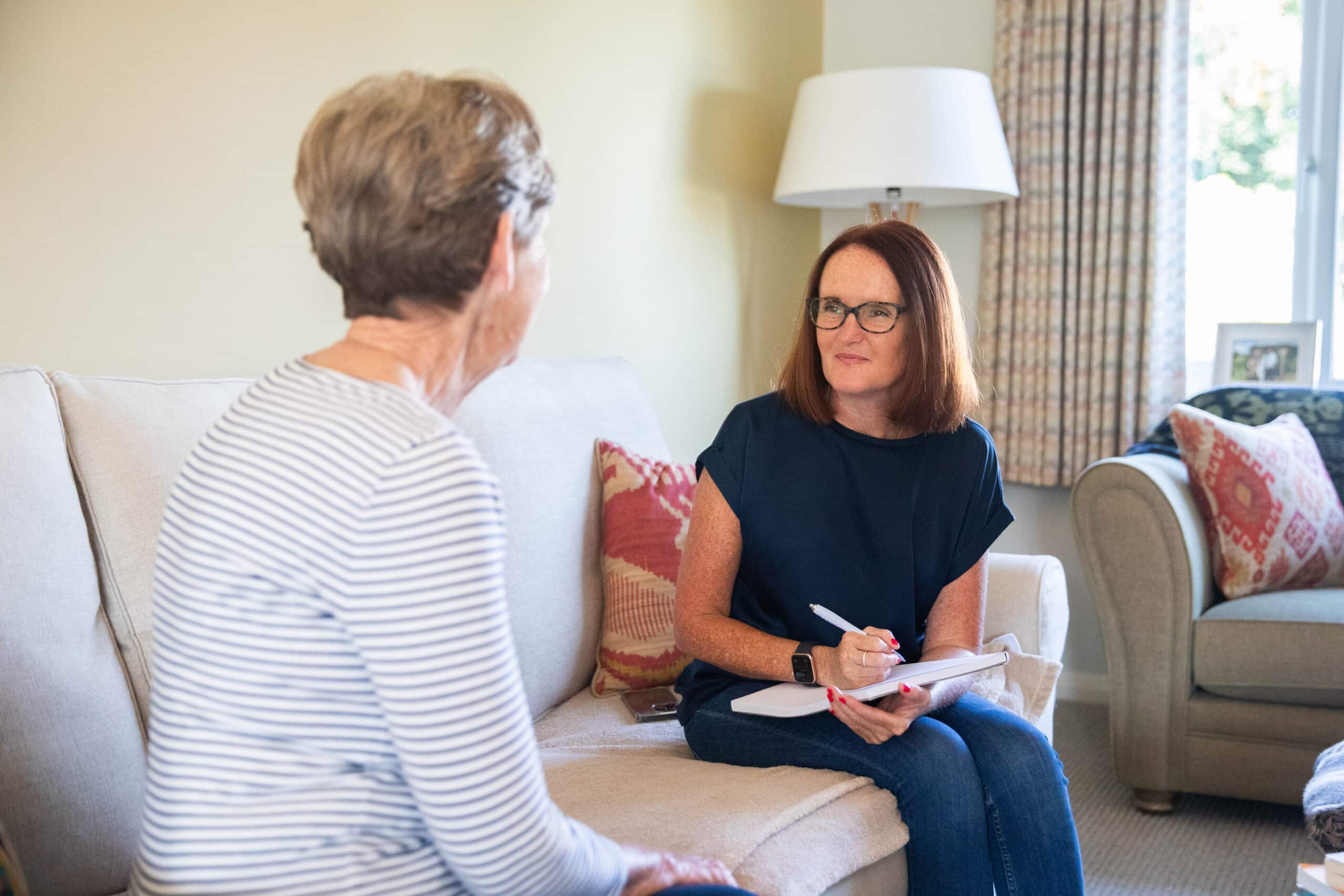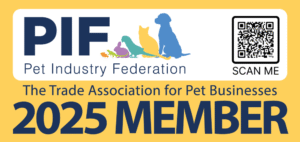Can Imposter Syndrome be something that is helpful for your pet business?
According to Nicola Kinnard-Comedie, my guest on the podcast this week, it can.
Nicola is a business and mindset coach for equine and canine practitioners.
She helps clients change their mental programming and develop business strategies to grow their horse or dog focused business.
Self doubt, feeling as if you’re not good enough, worrying about your capabilities and being your own worst critic are issues I see all the time.
Usually termed as ’Imposter Syndrome,’ in this podcast episode, Nicola shares how to identify these feelings, how to over come them and how it can be your friend. Really!
To learn more, listen in on the player link below and you can read the key points covered as a blog post.
Hi Nicola, can you tell us about your background
“I started as a riding instructor, teaching people to ride horses for over 15 years, then I did a Masters degree.
“Then I ran a yard for a while, but it wasn’t using my skills, so I did a corporate sales job for Mars for a number of years.
“Then I had a baby, and I didn’t want to do that, so in 2017, I was in a bit of a muddle, and I wanted to figure out a way to use my skills to help more people and horses.
“I felt frustrated with helping one person or horse at a time, so that led me to to run courses for horse owners and then horse business owners.
“This developed into big conventions and conferences, and eventually business coaching for horse and dog practitioners all around the world.”
What led you to coaching?
“I always had an interest in mindset work and in my 20s I had ME, also known as Chronic Fatigue Syndrome, so I was really unwell, and that’s where I learned my skills.
“I’d trained in Neuro-Linguistic Programming (NLP) training your brain and the idea of it being capable of giving you a different reality.
“I ran my first course as a distraction in 2017 and then I just loved it and ran another one and another one.
“That’s where I started to see the need for business coaching and that led me to refine my coaching with horses into NLP training.
“Because I’d seen the power of meditation and visualisation to get myself well, that led me to train in hypnotherapy and EFT as well, or tapping, and I just knew people needed my help.”
We’re here today to talk about imposter syndrome, can you define it?
“Imposter syndrome is quite simply not feeling good enough.
“And we love the term imposter syndrome because who wants to actually say, ‘Yeah, hands up, that’s me, I don’t feel good enough.’
“It may be in all aspects of your life and business, or it may just be in one area. And it shows up in so many different ways.
“Some of the things I’ve experienced is when clients might spend a day trying to write a Facebook post because they’re second-guessing what somebody who they went to school with might think.
“Feeling like a fraud, feeling full of self-doubt, feeling not good enough, is the underpinning emotion, being like, ‘I just got lucky.’
“It can be restlessness, nervous energy, negative self-talk, downplaying success, being fearful, that kind of sense of doom, feeling that it can’t last.
“Again, it really is underpinned by ‘I don’t feel worthy of all this good stuff.’
“Every morning, when we wake up, we get to choose a new story and what we tell ourselves.
“And right now you can decide, ‘actually, I’m going to start feeling good enough. And that I am going to just rip off this imposter type of label.’”
How can we deal with imposter syndrome in a more positive way?
“Rather than being like, ‘Oh, this is awful, it’s dragging me down,’ you can celebrate it like it’s there almost as a friend.
“These feelings got you to where you are right now.
“Let’s celebrate those ‘Imposter syndrome or feelings’ because they are doing two things.
“One, it’s got us to this point, it’s been motivating… it did serve you. So let’s thank it for what it’s done for us.
“Also, it’s doing something really useful. Because it’s showing us where we need to do the work.
“These imposter moments can be really good in shining a spotlight on where we need to work on ourselves.
“When you feel good enough, when you feel that you want to make the sale or attract the new clients, the marketing becomes so much easier and it’s fun, it’s lighthearted.
“And it feels a pleasure to communicate to people and help them and serve them and let them know how you could help them further.”
Can you share your strategies for overcoming imposter syndrome?
“Yes, the first is to trace it back to when you first started feeling that way.
“Draw a line and say, ‘OK, those feelings have served me.’ Trace it back and think, ‘When did I first feel like this? Show me a memory.’
“Get into a relaxed state and try to challenge your thinking, and look for the evidence to support your belief.
“The other thing is to create a success list or a list of things you’re proud of. It could be five things or 30 things.
“Save it on your phone, look at it when you need to, and you’ll be flooded with endorphins.
“It’ll remind you of all the amazing things you’ve already accomplished and keep those sneaky feelings of imposter syndrome at bay.”
I love power music if I need a boost.
“Yes, it’s about getting yourself to feel the way you want to feel. I call it ‘brain training for the busy,’ that’s what I teach.
“I show clients how to reset themselves back to positive between five and six times a day. So every three to four hours, they do something.
“It could be listening to a power song, shouting out five affirmations while they’re walking the dog or catching the horse in from the field.
“We can put on this Teflon coating every day so we can be resilient.”
I often find it’s the BS-ers who don’t struggle with imposter syndrome
“People who perhaps don’t have it and have all the credentials are a bit fly by night. They may well be feeling like imposters, but they’re just not letting it show.
“The outside appearance can look super successful. But underneath, the feelings may be really different. And those people never stick around.”
Do you think the caring nature of the pet industry makes people more susceptible?
“People who work with animals are always such over-giving and caring, lovely people.
“When you decide you want to make a business out of what you absolutely love or profit from your passion, that’s where these feelings can sneak in.
“You can feel like you don’t deserve success. ‘Who am I to think that I can make money from the thing I love doing?’
“We have years of mental programming that work should be tough, and going against that can bring up these feelings.
“Animal people are such givers and always putting themselves second because the animals always come first.”
And because of this, it’s so important to be seen, isn’t it?
“Yes, it’s about making that choice to constantly work on ourselves and top ourselves up, so we’re feeling amazing.
“Because in business, people will challenge you and make you doubt yourself. But when we really know where we’re going, that helps so much.
“I have this photo that I often share, a picture of my kids leading around one of the horses they ride. That sums up everything I want to work for.
“When I connect to that, I feel like I’m doing a disservice to horses and people if I’m not promoting my business, speaking, or posting on social media.
“One piece of content, one Instagram story could change someone’s day.
“Think to yourself, ‘My work changes lives,’ and this affirmation can be the same for everyone.
“What we do for the animals and the people we work with is potentially life-changing.
“When you deeply feel that and know you make a difference, you’ll never lack motivation to do the marketing.”
Wow, that is a brilliant message to end on. Where can people learn more about you?
Head to my website, https://www.nkcequestrian.com/
And I’m on Instagram: https://www.instagram.com/nkcbusinesscoaching
On Facebook: https://www.facebook.com/nkcequestriantraining/
And LinkedIn: https://www.linkedin.com/in/nicola-kinnard-comedie-01611693
Looking for more support in your pet business?
Check out my pet blog and directory at www.thepawpost.co.uk
Learn more about my membership: Is my Pets Get Visible Membership right for you?
If you enjoyed this post, you might like to read Why every pet business needs a win folder, Five things that stop you being bold in your pet business, How to stop comparisonitis holding you back with Kate Hoyle or How to deal with criticism from people in your industry.














